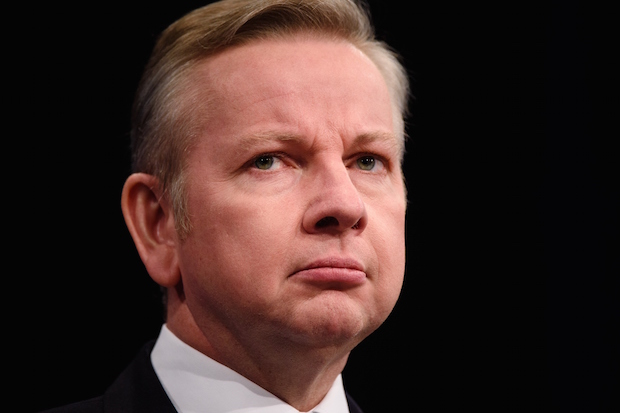Michael Gove had two clear aims in his leadership campaign launch speech. The first was to explain what the hell he’d just done, which he did using emotive language and a trembling voice. Sounding almost like a Shakespearean hero struggling with destiny, the Justice Secretary insisted that he had ‘never thought I’d be in this position’ and that ‘I did not want it, indeed I did almost everything not to be a candidate for the leadership of this party’. He then told the audience that he lacks charisma, which is indeed something that those who are Gove sceptics are worried about when it comes to persuading the country to vote for a Conservative party led by Gove. But he had to stand, he said, in rather melodramatic tones:
‘That realisation meant that I once more faced a difficult decision. Could I recommend to friends, colleagues and the country a course in which I no longer believed? I could not. I had to stand up for my convictions. I had to stand up for a different course for this country. I had to stand for the leadership of this party.’
Some parts of his speech sounded more like a Ucas application to read English at university than a leadership pitch: Gove even used the phrase ‘burning desire’ towards the end.
His second task was to explain why he would be a better candidate than Theresa May, who is now the frontrunner. His lines about lacking charisma and glamour echoed the Home Secretary’s launch yesterday. But mostly, he sought to contrast his policies with May’s record in the Home Office. He said:
‘The promise to take back control of our borders. I will end free movement, introduce an Australian-style points-based system for immigration, and bring numbers down. With my leadership, it will be delivered.’
And he argued that whoever won the leadership contest must be someone who campaigned for Brexit, a clear dig at May, who was nominally pro-Remain:
‘This referendum was about democratic accountability… the principle that politicians must answer, as directly as possible, to the people who elected them. Because of that, I believe the next Prime Minister has to be on the winning side of the argument.’
But there is one big question that Gove will have to answer in individual conversations with MPs over the next week in order to have a chance. That question is: ‘After what you’ve done, how can we trust you?’







Comments